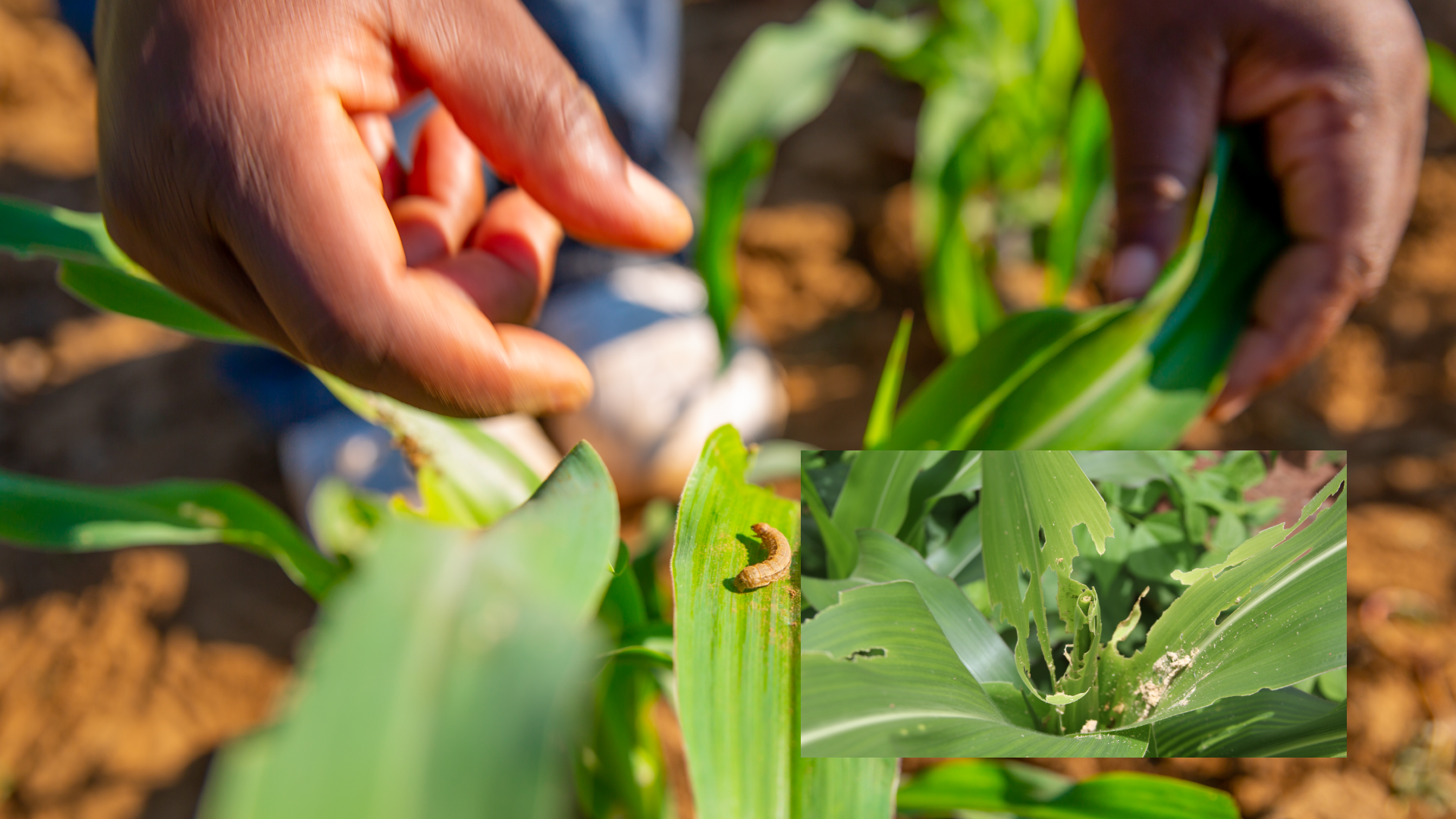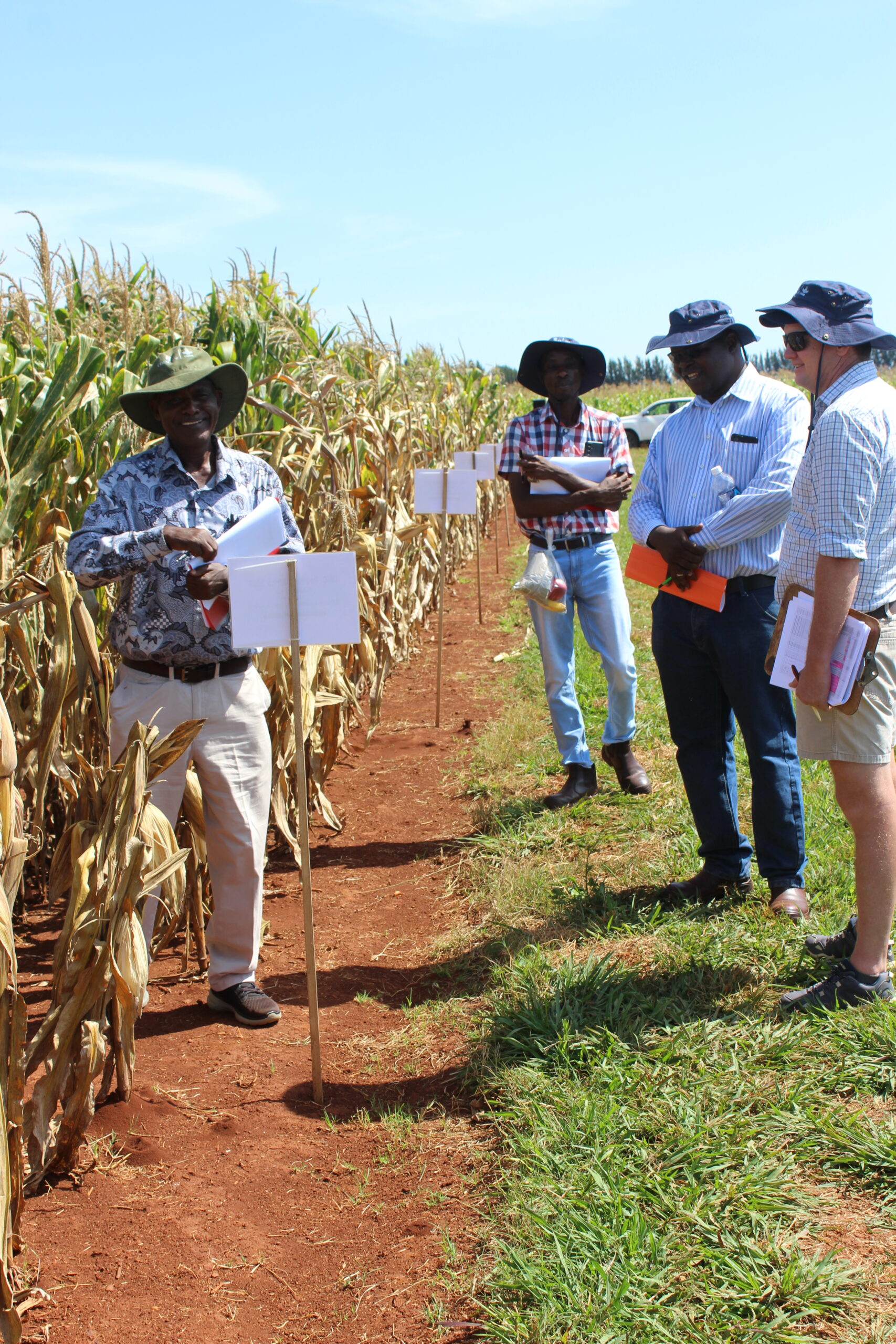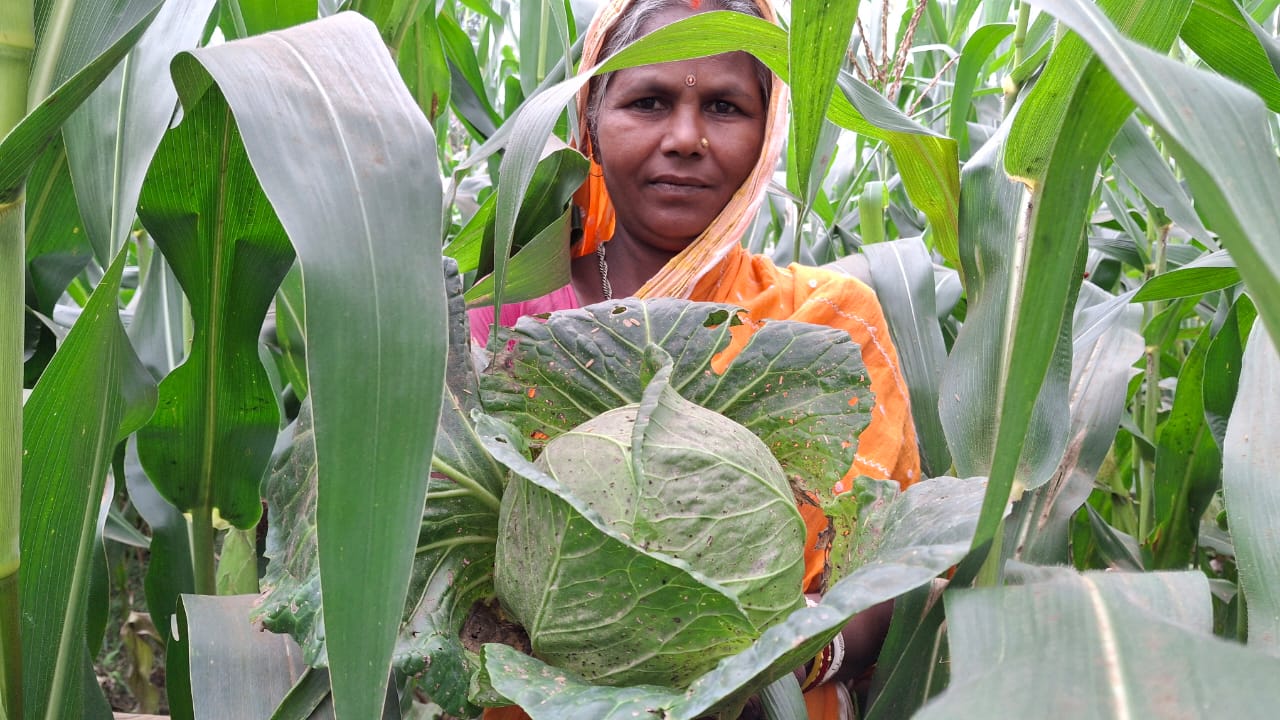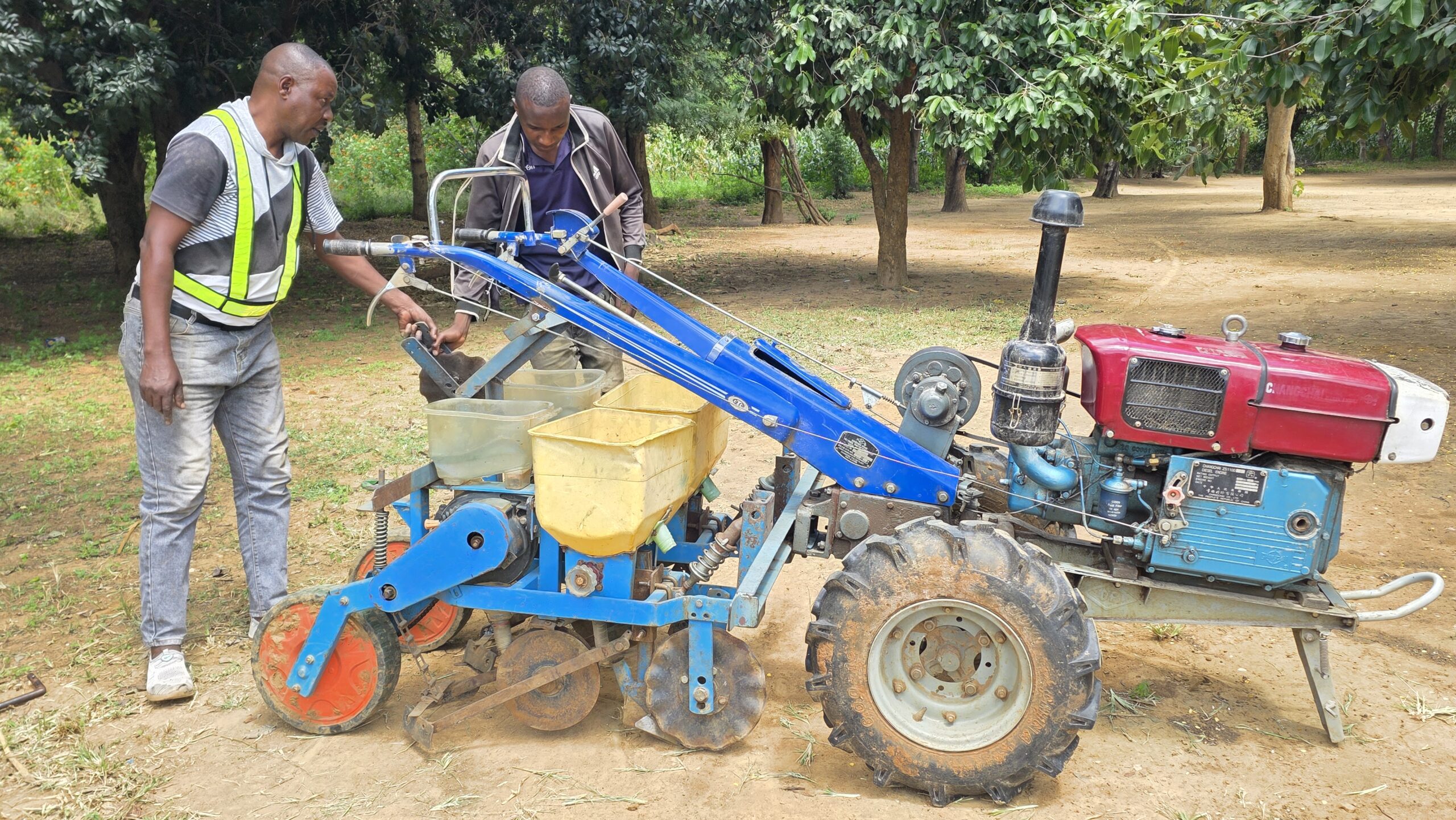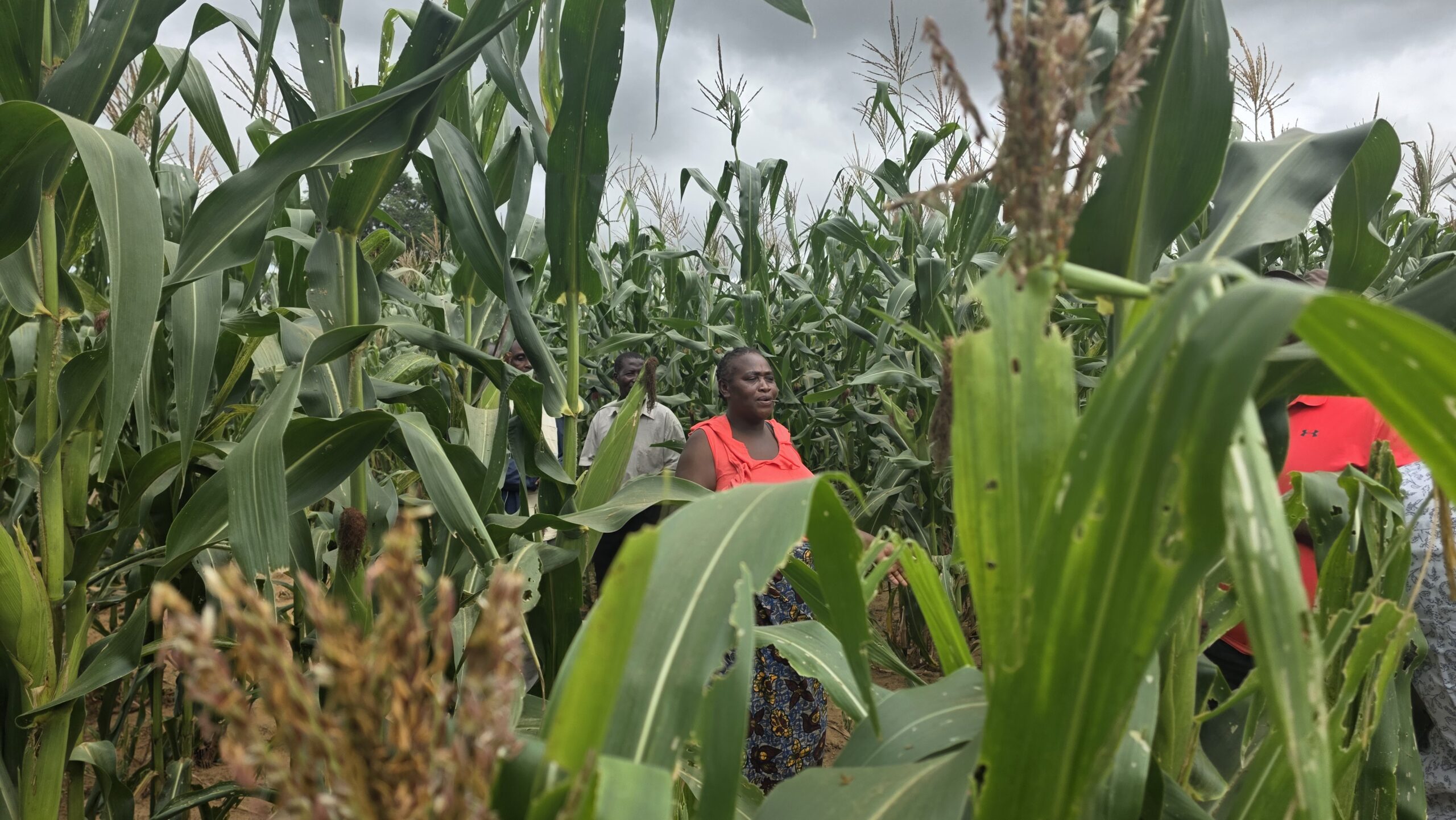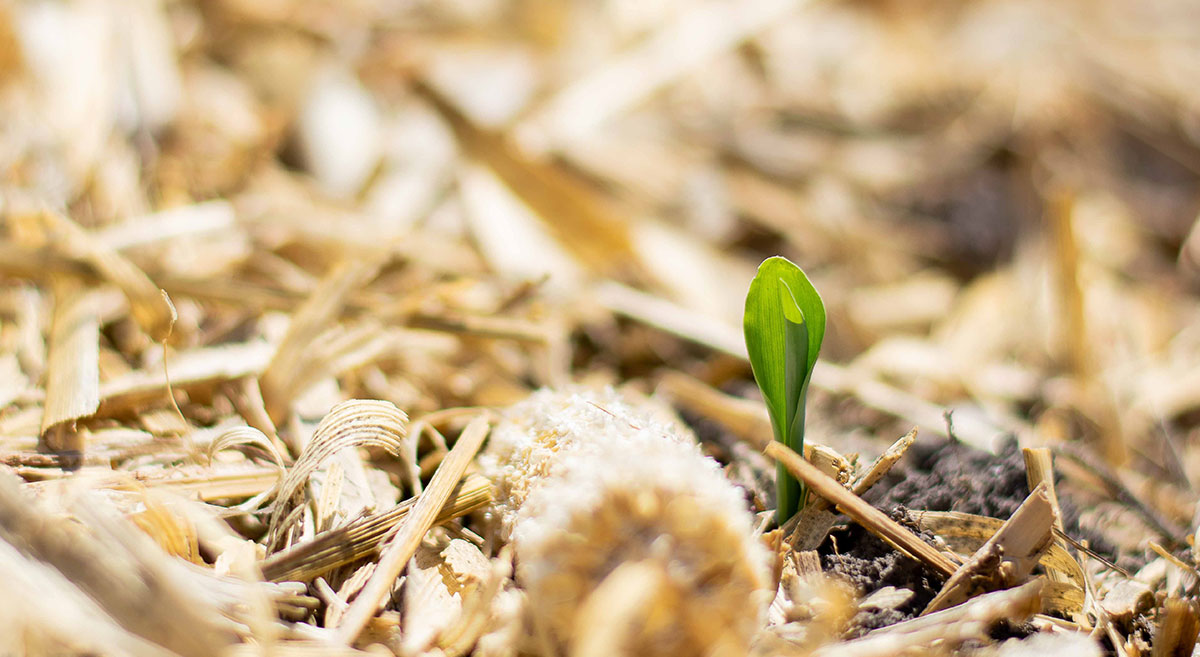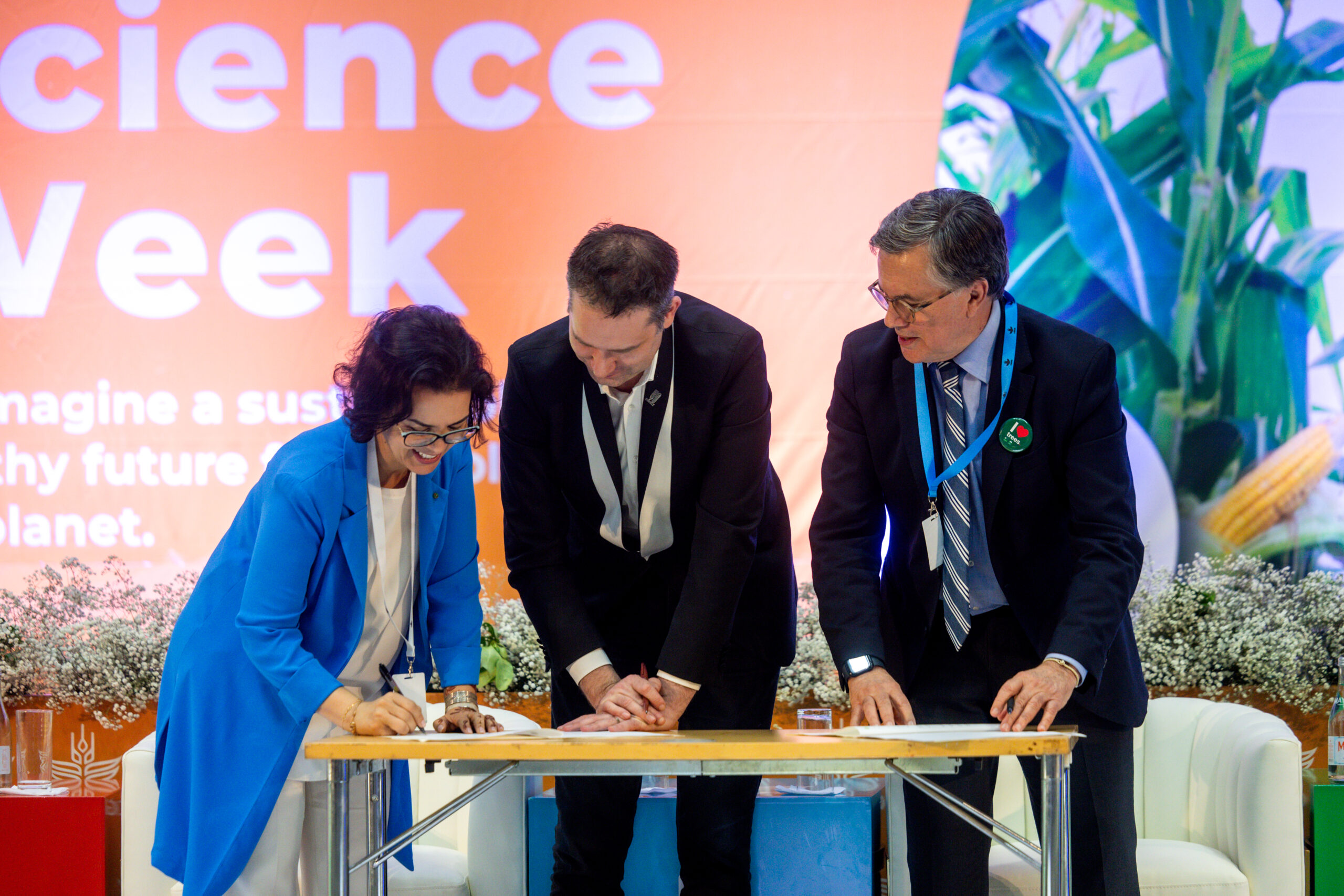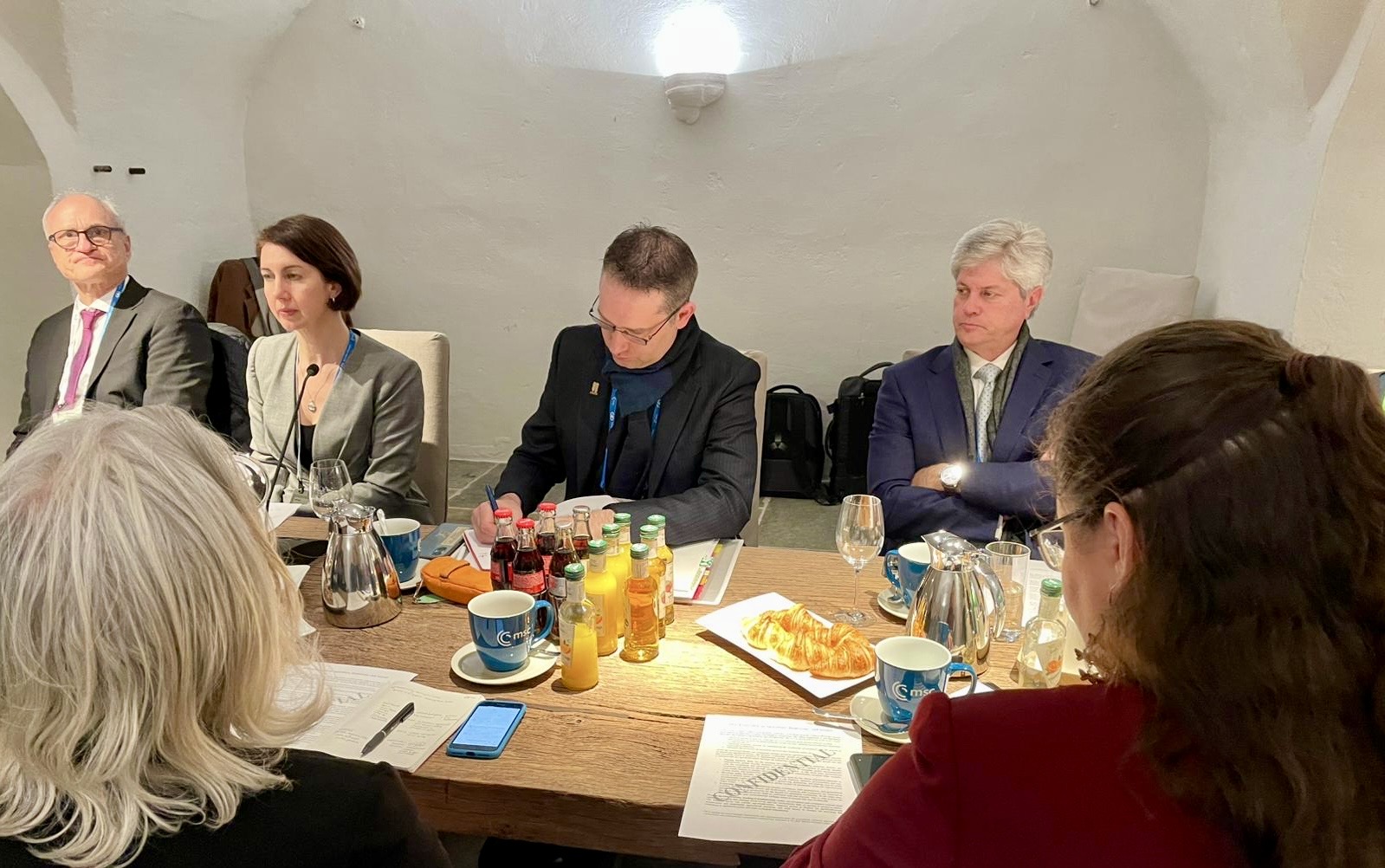Climate adaptation and mitigation
Climate change threatens to reduce global crop production, and poor people in tropical environments will be hit the hardest. More than 90% of CIMMYT’s work relates to climate change, helping farmers adapt to shocks while producing more food, and reduce emissions where possible. Innovations include new maize and wheat varieties that withstand drought, heat and pests; conservation agriculture; farming methods that save water and reduce the need for fertilizer; climate information services; and index-based insurance for farmers whose crops are damaged by bad weather. CIMMYT is an important contributor to the CGIAR Research Program on Climate Change, Agriculture and Food Security.
Small grains and new methods bring resilience to Zimbabwean farmers
 Climate adaptation and mitigation
Climate adaptation and mitigation
Source: Development and Cooperation (12 May 2025)
When the worm won’t wait: Battling Fall Armyworm with science, seeds and farmer-led solutions
 Climate adaptation and mitigation
Climate adaptation and mitigation
When the worm won’t wait, farmers fight back—with science in the seed and solutions rooted in the soil.
IMIC-Africa Field Day 2025: Where science meets collaboration to accelerate maize innovation in Africa
 Capacity development
Capacity development
IMIC-Africa Field Day 2025 brought together science, seed innovation, and collaboration across Africa to fast-track resilient, high-yield maize solutions from lab to farm.
New Breakthrough in Wheat Blast Resistance: A Novel Non-2NS QTL Identified
 Climate adaptation and mitigation
Climate adaptation and mitigation
Discovery offers a new avenue for more durable and diversified wheat blast resistance
Nigeria Releases Hybrid Pearl Millet to Boost Nutrition and Climate Resilience
 Climate adaptation and mitigation
Climate adaptation and mitigation
Source: Dailyhunt ()
Nigeria launches biofortified pearl millet varieties with support from CIMMYT and ICRISAT to combat malnutrition and climate challenges in dryland regions
Double the Harvest, Double the Income: Intercropping for Yield, Income and Security
 Climate adaptation and mitigation
Climate adaptation and mitigation
In eastern India, smallholder farmers are transforming agriculture through CIMMYT-led intercropping innovations that boost income, improve nutrition, and build resilience against climate risks
Reinventing mechanization for Southern Zambia’s drylands: The story of Joe Akombaetwa
 Climate adaptation and mitigation
Climate adaptation and mitigation
Farmer-innovator Joe Akombaetwa is transforming smallholder agriculture in Southern Zambia through climate-smart mechanization and farmer-led engineering, bridging practical ingenuity with sustainable development
Sugar Signalling Breakthrough Could Increase Wheat Yields by Up to 12%
 Climate adaptation and mitigation
Climate adaptation and mitigation
Source: Bioengineer ()
Field trials led by CIMMYT in Mexico confirmed that T6P spray treatments can consistently boost wheat yields by up to 12%, even under challenging climatic conditions
Sowing knowledge, Reaping impact: Lydia’s journey from trial farmer to community leader in Monze, Zambia
 Capacity development
Capacity development
Lydia Siankwede’s journey highlights how participatory research empowers smallholders to build resilience and boost productivity in Zambia
CIMMYT Appoints Flavio Breseghello as Global Wheat Program Director
 Capacity development
Capacity development
CIMMYT has appointed renowned wheat breeder Flavio Breseghello as Director of the Global Wheat Program to lead innovative, climate-resilient research at a critical time for global food security
Caring for the Earth to Secure the Future
 Climate adaptation and mitigation
Climate adaptation and mitigation
In the framework of International Mother Earth Day (April 22), initiatives such as Supporting Responsible Sourcing in Mexico highlight the importance of redefining our relationship with the Earth and offer options to establish a more harmonious connection with nature
Pest and disease attacks on crops rising due to climate change: Scientist
 Capacity development
Capacity development
Source: Business Standard ()
Climate change is accelerating pest and disease outbreaks in agriculture, prompting experts to call for urgent, science-based interventions to protect crop yields and food security
CIMMYT and IICA Partner to Strengthen Agricultural Innovation and Economic Growth in the Americas
 Capacity development
Capacity development
CIMMYT and IICA have joined forces through a new partnership to drive agricultural innovation, climate resilience, and economic growth across the Americas by connecting science to farmers and markets
A transformative leap in effective subaward implementation: Inside the revitalized sorghum and millets breeding programs at ZARI
 Capacity development
Capacity development
Through strategic leadership and support from CIMMYT, ZARI is emerging as a model for agricultural innovation and climate resilience, showcasing the power of science-driven collaboration to strengthen national research systems across sub-Saharan Africa
Munich Statement on Agriculture, Biodiversity and Security: there is no security without food security
 Climate adaptation and mitigation
Climate adaptation and mitigation
At the 2025 Munich Security Conference, CIMMYT led the call to endorse the Munich Statement on Agriculture, Biodiversity, and Security, highlighting resilient food systems and agricultural biodiversity as cornerstones of global peace and stability

